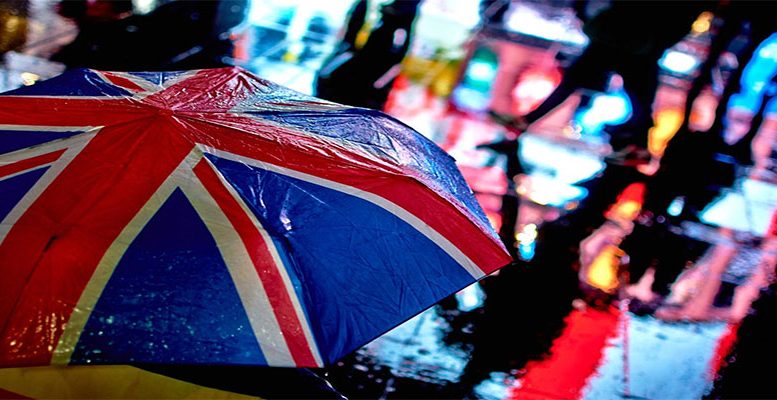By the time you read this, the conservative Chancellor Philip Hammond will have posed in front of number 11 Downing Street, holding up the famous scarlet briefcase with the annual budget papers. This scene is repeated every year. Hammond, like every UK Chancellor for the last century and a half, will repeat the gesture, which is part triumphant and part boastful, before the press. But figuratively speaking, the briefcase should be heavier for him than it was for his predecessor George Osborne: Theresa May’s government is increasing public debt at a rate of almost 25 billion pounds more than Osborne had forecast until 2020.
In three years, the UK will accumulate state debt of close to 2 billion pounds (2.3 billion euros). The figure has spread like wildfire , particularly amongst the country’s financial and political sectors which are the most sceptical about the hopeful picture May and Hammond are painting about the national economy after Brexit.
Robert Gardner, chief economist at Nationwide – the world’s biggest savings bank – has said that the fact there is a lack of comparative data should not be abused in order to give an excessively positive spin on the consequences of leaving the European Union. “Of course the economic situation in the coming years is uncertain, but our economists, like most others, predict that activity will slow from this year,” he explained. “ It will affect investment, the capacity for creating jobs and domestic consumption.”
Exagerated optimism
And it’s already affecting investment. According to the Bank of England, foreign investors got rid of over 7.5 billion pounds in UK sovereign bonds in January. This is the second month that the balance has been negative, and the biggest monthly decline since March 2014. It’s worrying because 25% of UK sovereign debt issued is in the hands of foreign investors. And as their sales increase, the cost of credit in the markets becomes more expensive for the government.
“Increasing public debt because it’s believed that the economy will grow and support a better balance sheet seems reasonable,” said Rob Dobson, economist at the influential financial data firm HIS Markit. “The problem is that they have not explained how we are going to grow.” Since the June 2016 referendum, official data indicates that GDP growth in the UK is due above all to the increase in consumption spending, not to a general improvement in results from the industrial sector.” The domestic commercial sector has doubled its production, while one in three companies have suffered declines in their performance. “The competitiveness of UK exports has almost not improved despite the fall in the pound and, on the other hand, it’s inevitable that soon this will be transferred into higher prices for the consumer,” economist Samuel Tombs warned. “There is no basis for the confidence that manufacturing can compensate the initial depression in the services sector.”
Carolyn Fairbairn, the managing director of the CBI, has echoed the country’s businesses’ increasing concern. Fairbairn issued a statement demanding “a clear strategy” from Downing Street on how it is going to collaborate to weather the Brexit storm. “What type of economy is it assumed we will be?,” she asked.
Neither May nor Hammond have yet replied. But the parliamentary committee for Brexit has: at the end of February it said the UK economy “was groping its way towards disaster”, and the reason for this are the conservative government’s extreme policies. In the words of MP Alison McGovern, “those who support the supposed limits on immigration which the government defends asume there will be no cost, that they are practical measures and their implementation is feasible. None of these three premises is correct. They will make public and private finances worse, our economy in general, and will create a bureaucratic labyrinth impossible to maintain.”





